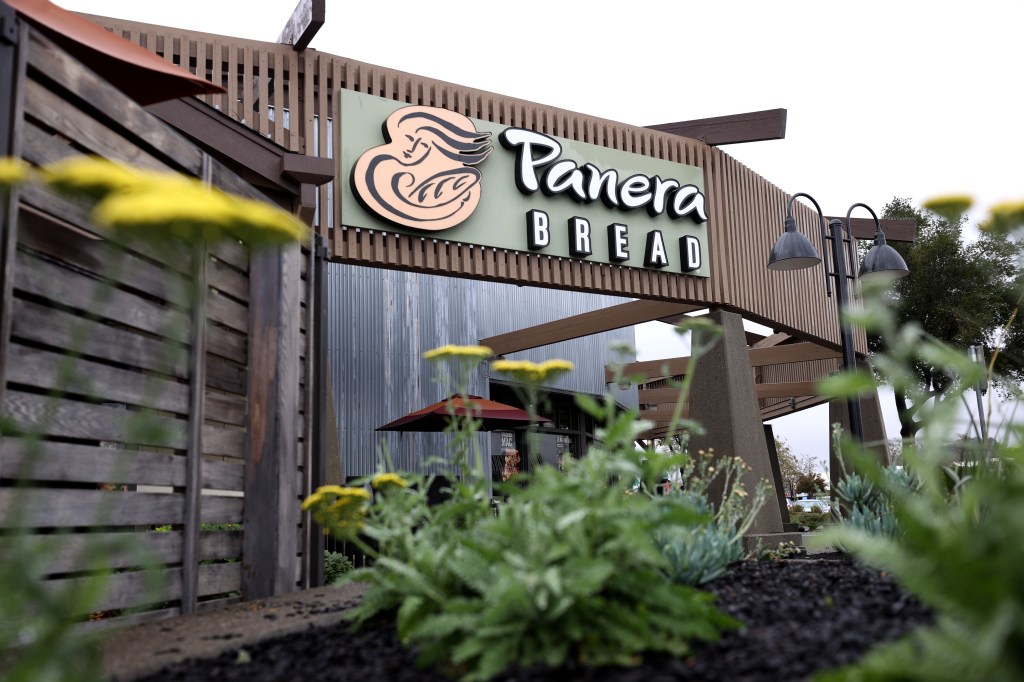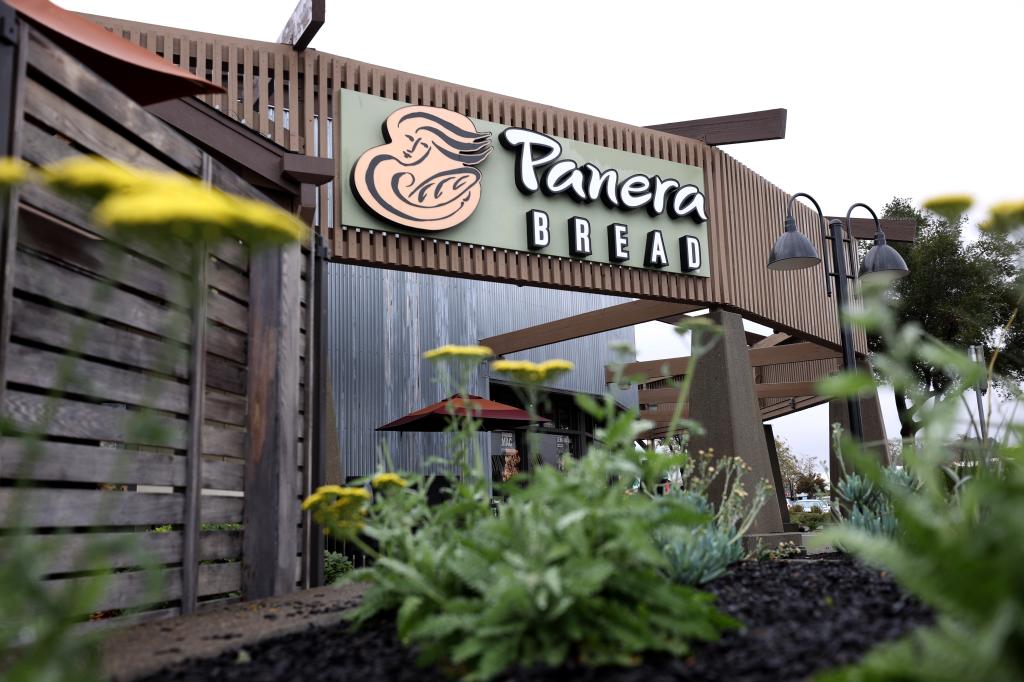Panera Bread owner who donated to California Gov. Newsom will hike wages after outcry over ‘bread exemption’
Contact The Author
The billionaire donor to California Gov. Gavin Newsom who operates some two dozen Panera Bread locations statewide is raising workers’ pay in response to a backlash over reports that his company was exempt from a newly enacted minimum wage law.
Greg Flynn, the commercial real estate investor and founder of Flynn Restaurant Group, the nation’s largest restaurant franchisee, will bring employee wages at his 24 California-based Panera Bread locations in line with the new law that raises hourly pay from $16 to $20, according to Bloomberg News.
The pay raise will be made despite the fact that Flynn’s Panera Bread restaurants in California will be exempt from the new law which goes into effect next month.
“To be clear, at no time did I ask for an exemption or special considerations,” Flynn said in a statement to Bloomberg News.
The Post has sought comment from Newsom, Flynn, and Panera Bread.
Last week, Bloomberg News reported that Newsom, the Democrat who has been governor of the nation’s most populous state since 2019, lobbied lawmakers in Sacramento to carve out an exemption to his new minimum wage law for restaurants that sell bread as a standalone menu item.
Newsom and Flynn shared longstanding business and personal ties. They both attended the same high school. In 2014, Flynn acquired a Napa Valley resort that was managed by Newsom’s hospitality firm, according to disclosure forms.
Flynn has also donated at least $164,800 to Newsom’s gubernatorial campaigns.
A spokesperson for the governor told Bloomberg News that the suggestion Newsom lobbied for an exemption on behalf of Panera Bread was “absurd.”
Erin Mellon, Newsom’s communications director, said that Panera Bread would not be subject to the minimum wage law because it was defined as a “fast casual” restaurant rather than “fast food.”
“The exemption was never about Panera. It was always about defining fast food from fast casual,” Mellon told Bloomberg News.
Flynn released a statement on Tuesday saying that the decision to hike wages was intended “to attract and retain the best team members to deliver the restaurant experience our guests know and love.”
“Regardless of whether the bakery exemption in AB 1228 applies to our bakery-cafes, California locations owned and operated by Flynn Group will increase all hourly pre-tip wages to $20 per hour or higher effective April 1,” the statement read.
AB 1228 is the number of the bill that was put forward in the state legislature.
According to reports, Flynn was among several business leaders who panned Newsom’s plan to raise the minimum wage for fast food chains.
Top executives at McDonald’s and Chipotle have warned that the new law would force the restaurants in California to pass on the rising labor costs to the consumer in the way of price hikes for key menu items.
Flynn told Bloomberg News that he played no role in crafting the bread exemption to Newsom’s minimum wage law.
But Flynn is reported to have lobbied Newsom staffers to exempt Panera Bread from the law, arguing that the brand is not a fast food chain.
Flynn acknowledged to Bloomberg News that he “did meet with [Newsom’s] staff in a group meeting with other restaurant owners” but denied lobbying the governor personally.
“This legislation was the result of countless hours of negotiations with dozens of stakeholders over two years,” a spokesperson for Newsom told The Post last week.
“Staff in the Governor’s Office met with dozens of business owners as well as union representatives, as is expected when policies of this consequence are moving through the Legislature.”







